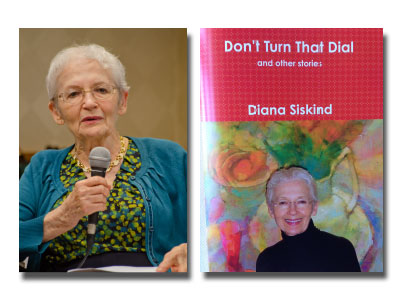My immigrant mother was never able or willing to adjust to life in America, and she paid a heavy price for this. She lost the respect of her relatives and even of her six children. As the youngest child, I sensed the disrespect and behaved badly towards her as well. When I was a teen-ager, I drifted far away from her and never reconciled.
But late in my life, long after her death, I finally understood what had happened in her life and have tried to achieve closure with her by imagining and writing about it. In doing this, I’ve been able to create a new reality of the mutual love that existed between us, even though unspoken.
The following is part of an imaginary conversation we never had, but I wish we could have had:
“Mother, I remember that when I was about 15, I wanted something that for some reason I couldn’t have and I began screaming and hitting the wall. You folded your arms across your chest and laughed so hard that I stopped screaming. I had never seen you looking so alive before. Why were you laughing?
“I laughed because you were like a real American child. No child in Russia would dare to do that in front of his parents and, maybe, who knows? Maybe I was a little proud. You were so wild!. . . always going your own way. . . strong!. . . smart. Ach! I wish I could have been so smart! But. . .”
“Mother, somewhere I have the memory that you took care of me when I was in pain…crying.”
“Of course, who else?
“You nursed me through my accidents and diseases and spoon-fed me with chicken soup and cod-liver oil. I can see you syringing my aching ears with warm water.
“I did, I did. Oh my God, I did! You make me cry, Dina. I cared for you. I forgot how much I cared for you!”
“And, Mama, even now, you’re the one I still call to when I’m lonely or hurting.”
“Tyereh tochter, my dear daughter, I love you, love you. . . forever.”
“You gave me life, Mama. I love you, too.”
